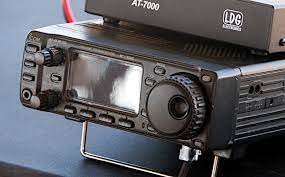The Global Significance of Ham Radio Stations and Licensing
Synopsis
This article examines the global significance of ham radio stations and licensing, with a particular emphasis on Sri Lanka and its community benefits.
Ham radio, or amateur radio, is a crucial communication resource that connects individuals worldwide. It plays an essential role in emergencies, offering reliable communication when other systems fail.
To operate ham radio equipment legally, operators must obtain a license. This process ensures they possess the technical knowledge necessary to comply with regulations that prevent interference with other communication services. While licensing procedures differ across countries, they typically involve passing an exam covering radio theory, regulations, and operating practices.
In the United States, the Federal Communications Commission (FCC) issues licenses in various tiers: Technician, General, and Extra. Each tier provides different operating privileges, with the Extra class granting the most extensive frequency access. Similarly, in the United Kingdom, the Office of Communications (Ofcom) offers three license levels: Foundation, Intermediate, and Full.
In Sri Lanka, the Telecommunications Regulatory Commission (TRC) manages the licensing process for amateur radio operators. The TRC provides multiple classes of licenses, each with unique privileges and requirements. Obtaining a license involves a written exam that assesses technical knowledge, operating practices, and regulations.
 |
| Ham radio can be used for direct radio to radio communication, interfacing with disaster response agencies, and even sending off-grid email using Winlink. Link: Post.. |
Ham radio serves as a critical lifeline during natural disasters such as hurricanes, earthquakes, and floods. For instance, during Hurricane Helene, ham radio operators maintained essential communication links when other systems failed. As of October 7, 2024, over 200 lives have been lost due to the hurricane, and many are still missing. Over 100,000 people in Western North Carolina remain without power, highlighting the urgent need for reliable communication in disaster situations to locate missing persons and coordinate rescue efforts.
Ham radio fosters community among operators, promoting collaboration, knowledge sharing, and mutual assistance. This is particularly beneficial in rural areas of Sri Lanka, where modern communication infrastructure may be limited. Additionally, ham radio encourages interest in science, technology, engineering, and mathematics (STEM). Schools and universities in Sri Lanka can incorporate ham radio into their curricula, offering hands-on learning experiences. It also enables operators to connect with people from diverse cultures and countries, fostering cultural understanding and global friendships that enrich Sri Lankan society.
During Hurricane Helene, ham radio operators were instrumental in disaster response. Their ability to communicate without relying on the internet or cell service provided critical support. Ham radio operators facilitated locating missing persons, coordinating supply drops, and sharing information about road conditions. Notable operators like Dan Kitro (K2DMG) and Thomas Whitherspoon (K4WSL) have made significant contributions in managing communications and disaster response efforts.
Ham radio has proven its value in other disaster scenarios as well. After the devastating earthquake in Haiti in 2010, ham radio operators quickly established communication links, providing essential information to aid organizations and coordinating rescue efforts when other systems failed. In the aftermath of the 2004 Indian Ocean tsunami, ham radio operators in affected areas, including Sri Lanka, relayed information about survivors and facilitated relief efforts, operating independently of damaged infrastructure. During Hurricane Katrina in 2005, ham radio operators provided emergency communication when power and phone lines were knocked out, aiding rescue operations and supply deliveries. Following the 2011 earthquake and tsunami in Japan, ham radio operators helped bridge communication gaps, offering updates on the situation and assisting with relief coordination.
In the United States, the FCC allows individuals to use any means, including ham radio, to communicate without a license in life-threatening situations. However, obtaining a license is crucial for gaining hands-on experience and preparing for emergencies. It only takes a few hours of study and passing a straightforward 35-question exam to get your ham radio license, so don’t wait for the next disaster to take this important step.
Ham radio is more than a hobby; it is a vital communication tool with significant advantages for individuals and communities. By promoting and supporting ham radio in Sri Lanka, the country can improve its emergency preparedness, foster community spirit, and create valuable educational opportunities. As evidenced by Hurricane Helene and other disasters, the need for dependable communication during emergencies underscores ham radio’s importance for Sri Lanka’s future resilience.
By Palitha Ariyarathna
Reference: 1: ARRL: Amateur Radio Response to the 2010 Haiti Earthquake 2: OnAllBands: Bharathi Prasad and the Indian Ocean Tsunami 3: ARRL: Amateur Radio Response to Hurricane Katrina 4: ARRL: Amateur Radio Response to the 2011 Japan Earthquake and Tsunami

